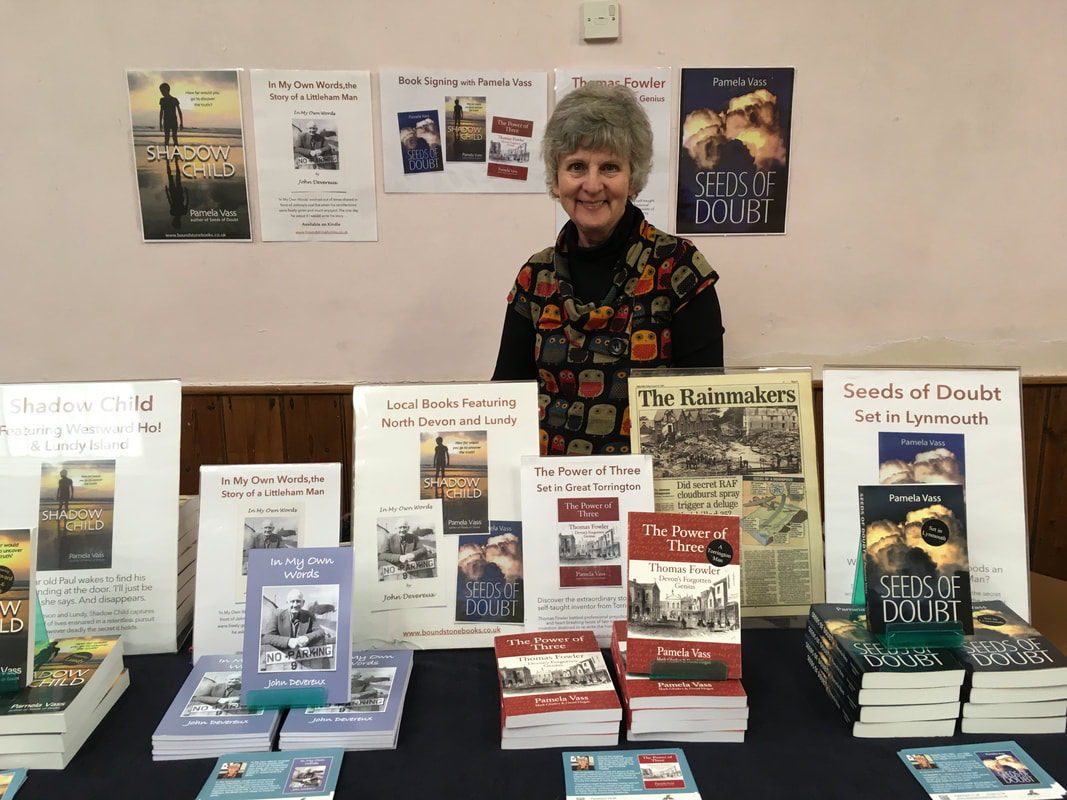|
The West Country holds a wealth of stories waiting for an author to bring them to life. How do we go about finding them?
A story may begin with a rumour circulating about a place or an event Or a snippet in a paper that raises more questions than it answers Or curiosity about how national events played out here All three have been starting points for me. An intriguing rumour provided the inspiration for Seeds of Doubt. I was the director of a murder-mystery company working in Lynmouth, a small coastal village in North Devon, when I first heard a rumour that experimentation with the weather may have been behind the devastating floods there in 1952. I began to delve. The government have always denied any involvement but after 30 years anyone can access top secret documents held at the National Archive at Kew. It was all there in black and white - an irresistible, unbelievable, true basis for a story. Add in a central character with a crucial personal reason to discover the truth - with plenty of twists and turns and jeopardy along the way - and you have Seeds of Doubt. An intriguing newspaper snippet was the starting point for The Power of Three. 'Wooden Computer invented in North Devon' it read. What? By someone called Thomas Fowler. Who? A self-taught mathematician from Devon who invented a ternary calculating machine - okay, now I see your eyes glazing over! Despite being mathematically challenged I sensed there was a story here to be told. I dedicated myself to trawling university archives in London, Cambridge and Oxford until I had uncovered it. If I'd known it would take quite so long I might have thought twice but I'm so glad I didn't. A heart-breaking story of a brilliant man who was thwarted at every turn began to emerge, a man who, despite dying in 1843, still has a relevance to the twenty-first century. Curiosity about how national events play out locally prompted my next book, Fire in the Belly, due out in 2017. The recent film Suffragette demonstrated the power of storytelling to bring bare facts to life. The facts tell us that after a child reached 7 the mother had no rights to him or her. The fiction brought us the agony of a mother whose child is given up for adoption and there is nothing she can do to keep him. Initially it seemed there was no story to find in North Devon but then l began to dig - an appropriate word. The process is much like Time Team, unearthing the stories that lie beneath the surface. There are a lot of false starts and dead ends but also spine-tingling moments that spur you on. I discovered rumours of suffragette arson in Lynton. Why there? A few dusty archives later I had my answer. The judge who sentenced suffragettes to the degradation of Holloway prison had a very personal connection to North Devon. That's the buzz - revealing a story everyone has either forgotten or even better - never knew. And there is always more to discover, adding twists and turns to the story. In Fire in the Belly, you'll walk alongside the main character as she discovers the body on Ilfracombe beach of a lady living under an alias. Who was she? Why hide her true identity? How did she die? Writing fiction from fact involves suspense, mystery, character development, heightened emotions, jeopardy - all the best building blocks for an author ... but based on real lives, real events, real jeopardy.
3 Comments
|
Author, lover of real life mysteries and walking the moors.
Archives
December 2021
See previous blogs at: pamvass.blogspot.co.uk
Categories |



 RSS Feed
RSS Feed